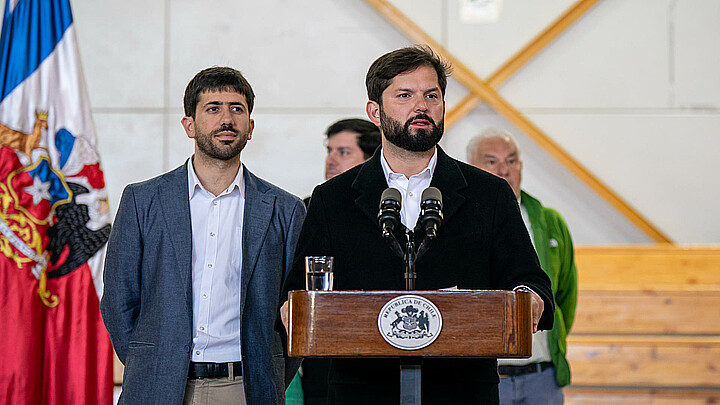Politics
Chileans appear poised to reject the radical left's new Constitution
"I'm starting to lose trust that something good is going to come out of this," one former supporter said
April 6, 2022 2:38pm
Updated: April 6, 2022 5:56pm
Although 78% of Chileans voted in favor of drafting a new Constitution in a referendum held in May of last year, there is evidence to suggest that support for the country’s new left-wing magna carta is wavering.
According to data from a new Cadem survey, voters planning to approve the new Constitution dropped from 56% to 40% since polling started in late January, with a 10-point dip recorded since late March.
As more voters move to reject the radical left’s constitutional project – which includes amendments that would eliminate the senate and the country’s renowned private pension system -- experts are becoming increasingly confident that the Constitution Convention’s forthcoming draft will fail in a national yes-no vote scheduled to be held in September of this year.
Calls for a new Constitution first hit the Chilean public sphere in October 2019 after mass protests rocked the cities across the Andean nation.
After the left organized and called for the government to eliminate all vestiges of Gen. Augusto Pinochet’s economic and political model, an agreement between several political parties was reached in November 2019 to start the process to write a new constitution.
But in an interview with ADN America, Chilean writer, lawyer and political scientist Axel Kaiser said that the left’s claims that Chile’s magna carta is the same as Pinochet’s 1980 Constitution is a blatant lie, adding that there have been several referendums in the years since Chile returned to democracy.
"What's left of the Constitution was signed by former President Ricardo Lagos and is one of the most revised texts in the history of the Chilean constitutions. Only a third of the text comes from (Pinochet's) 1980 Constitution and 54 reforms were approved in plebiscites in 1989 and later under the government of Ricardo Lagos,” Kaiser said.
Furthermore, Kaiser warned that an overhaul of the Constitution would inevitably put Chile on the path to becoming “just another mediocre Latin American country.”
Kaiser’s analysis is worth keeping in mind when thinking about the ongoing constitutional debate. Presently, the assembly is dominated by independents and radical leftists whose proposals have included abortion rights, indigenous self-governance and the elimination of Chile’s private pension system. Although many of these proposals have been celebrated by the left, conservatives and moderates alike have, in recent months, become vocal critics of the left’s overhaul of the free-market system.
"People called for changes to pensions, public transport costs, the right to healthcare, but what we are seeing is a convention that's distanced itself from people's expectations," said Francisco Zambrano, a constitutional lawyer in Santiago.
Proof of the Chilean public’s growing distaste for the proposed changes is becoming increasingly evident and most proposals have already failed dramatically. In March alone, 96 of the 93 proposals presented by the commission in charge of designing Chile’s new political framework were voted down.
"The disagreements are linked to different solutions or ways we can see to get out of an institutional crisis," said Barbara Sepulveda, a lawyer from Chile's communist party who is involved in the redraft.
Speaking about Boric’s unexpected victory against conservative Jose Antonio Kast, Kaiser said, “I came to the conclusion that we were about to welcome in a government that wanted to absolutely destroy Chile’s economic system.”
While Kaiser stated that many of Chile’s leftist reforms began under the government of Michelle Bachelet, he warned that Boric's Constitutional Convention could destroy what's left of the country's free-market model and destroy Chile’s 200 year-old rule-of-law.
Furthermore, Kaiser warned that unusual changes to the convention process have allowed for radical representatives to propose amendments that would, in essence, “create a parallel legal system” and “destroy judicial independence” – a move Kaiser says is “typical of all totalitarian movements” and could help terrorist indigenous groups in the south "create a parallel state where criminal and drug related activities can occur without the Chilean state's intervention."
Speaking to Reuters, Javier Alonso, a Chilean telecoms worker who volunteered as an election observer for the approve camp in the referendum, said he was unsure if he would still vote for the new Constitution.
"I'm starting to lose trust that something good is going to come out of this," he said.








